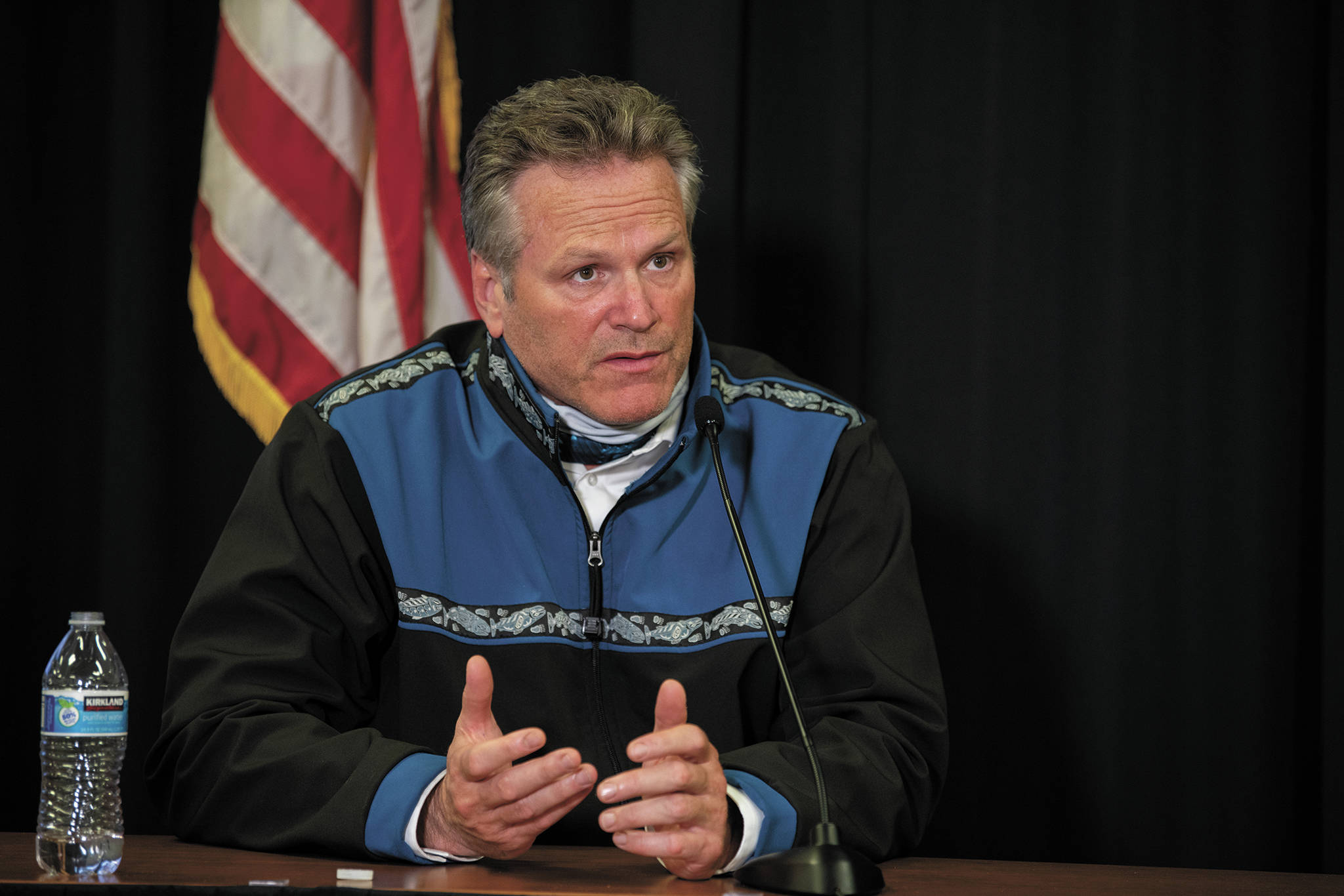In the first virtual town hall of the year, Gov. Mike Dunleavy answered questions from Alaskans about his proposed budget for the State of Alaska, which includes a $350 million dollar bond package for infrastructure development and nearly $5,000 in Alaska Permanent Fund dividend payments.
“This economy has taken such a shock to the system that experts don’t believe it’s going to get back up by itself,” Dunleavy said Tuesday night. “We’re going to have to help it.”
Dunleavy’s budget would draw about $6 billion from the Permanent Fund’s Earnings Reserve Account in order to pay for these proposals. Dunleavy said repeatedly Tuesday night that the permanent fund increased in value by about $10 billion from March to December of this year, a claim he has repeated since rolling out his budget in December. The permanent fund was valued at around $60 billion at the end of March, which was about $7 billion less than its value at the beginning of the calendar year 2020, according to reporting by the Alaska Journal of Commerce. The permanent fund and other stock portfolios took major hits during the early days of the pandemic, which also saw oil prices briefly drop into the negatives.
As of Dec. 7, the permanent fund had an unaudited value of about $72 billion, which means it increased in value by about $5 billion over the course of the year.
Dunleavy was asked a series of prescreened questions submitted to his office ahead of the town hall. His communications director, Dave Stieren, presented the questions.
In response to his proposed budget, Dunleavy was asked was if he expects his proposed budget to be passed as-is by the Alaska Legislature. Dunleavy said that he thinks the budget has a decent chance of passing, given the context of the pandemic and Alaska’s struggling economy.
“Many lawmakers have been contacted by their constituents. Many of those constituents have been laid off or had hours reduced, or their businesses have been hurt,” Dunleavy said. “There are a tremendous number of Alaskans calling for the Legislature to act on this, and the feedback that I’m getting on this, at least the legislators I’m talking to, they’re taking it seriously.”
Dunleavy and his team, which included Department of Health and Social Services Commissioner Adam Crum and Chief Medical Officer Dr. Anne Zink, also fielded questions about the COVID vaccine. One of the questions was why people over the age of 65 have been given vaccine priority over teachers and other essential workers outside of health care. Dunleavy said that the decision to vaccinate the elderly next was one based on morality.
“Seniors are being hit harder than any other group,” Dunleavy said. “Many of them have not been able to interact with their friends and family, and unfortunately many of them have passed away. I believe we have a moral obligation to help our most vulnerable.”
To view the town hall in its entirety, visit Dunleavy’s Facebook page or go to gov.alaska.gov.
Reach reporter Brian Mazurek at bmazurek@peninsulaclarion.com.

